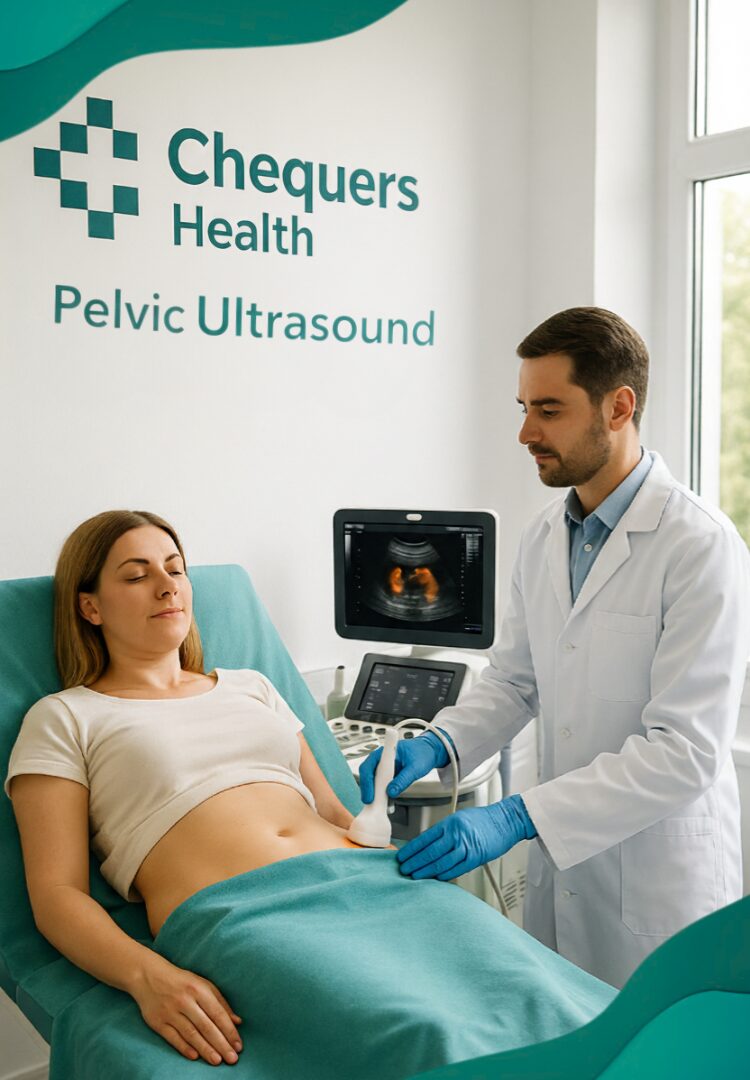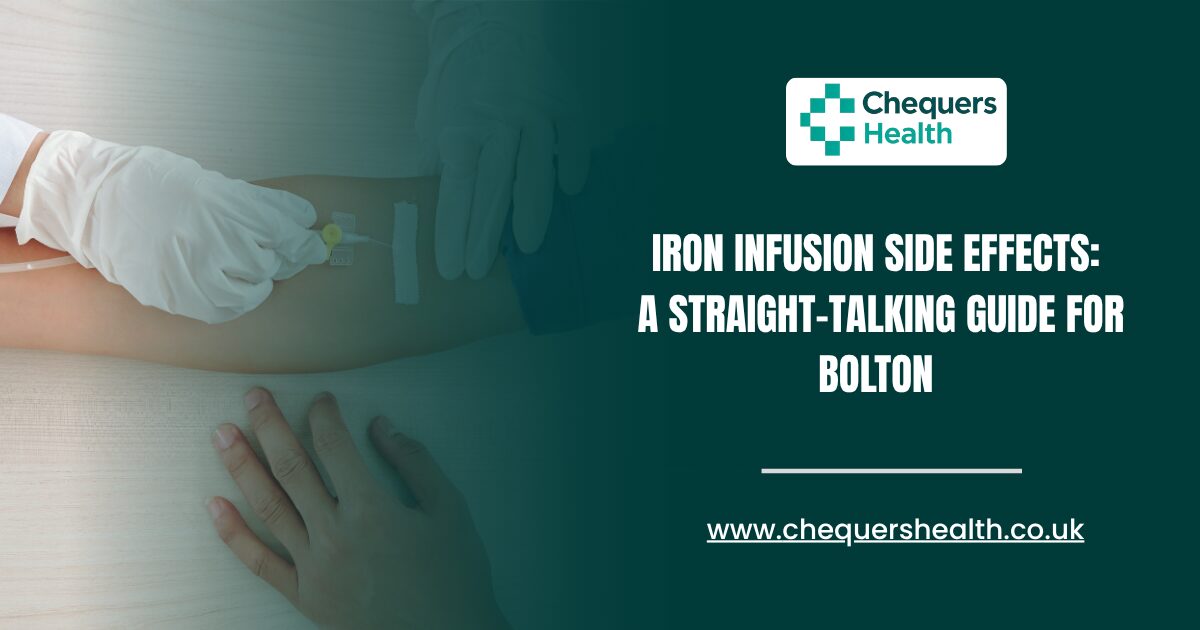Pelvic Scan
A pelvic scan, also known as a pelvic ultrasound, is a medical imaging test that uses sound waves to create detailed images of the pelvic organs, including the uterus, ovaries, fallopian tubes, and bladder
Which conditions can a pelvic ultrasound help diagnose?
A pelvic ultrasound may help diagnose a wide range of conditions, including
- Uterine fibroids
- Ovarian cysts or tumors
- Polycystic ovary syndrome (PCOS)
- Endometriosis
- Pelvic inflammatory disease (PID)
- Abnormal uterine bleeding causes
- Pregnancy complications (ectopic pregnancy, miscarriage, placental issues)
- Endometrial abnormalities (thickening, polyps, cancer screening)
- Bladder problems (stones, tumours, obstruction)
- Prostate enlargement (in men)
- Pelvic masses or fluid collections

Key Questions for an Pelvic Scan
Book your Pelvic Ultrasound Scan Now For Better Health With Chequers Health
Book your Pelvic Ultrasound Scan Now For Better Health With Chequers Health
Book your Pelvic Ultrasound Scan Now For Better Health With Chequers Health
Book your Pelvic Ultrasound Scan Now For Better Health With Chequers Health
Preventive, Trusted, and Affordable Healthcare for All
Chequers Health is a well-known private healthcare provider in Bolton. It is registered with the CQC and trusted by many patients in the Northwest of England. Our dedicated team is committed to providing personalised care tailored to each patient’s unique needs and exceptional care.

Our Clinicians
At Chequers Health, our specialists blend expertise, compassion, and convenience to deliver the care you deserve. We prioritise quick access and personalised care, ensuring that your health needs are addressed promptly and effectively by trusted professionals.
Frequently Asked Questions
Features Articles
Stay Connected with Chequers Health Group
Join our community and never miss out! Be the first to know about new health updates, training opportunities, and expert tips designed to keep you informed and empowered.

I was extremely low on iron and can’t take iron tablets. The NHS couldn’t help me quickly enough and I honestly feared for my life.
I had two iron infusions and now feel back to good health.
The staff , doctors and the nurse were second to none .
They suggested I get further checks done via my GP so as to find the reasons why I had such a dangerously low level .
My GP sent an urgent request to the hospital and I have just had an endoscopy, a colonoscopy and a CT scan and await the results.
None of this would have been possible to be completed within 4 weeks without Chequers help and advice.
Thank you for giving me my life back.

Really friendly, staff were very accommodating and very thorough in what they do. Very reassuring and couldn’t possibly have helped anymore than they did

Staff lovely place is well maintained and not to expensive on prices







